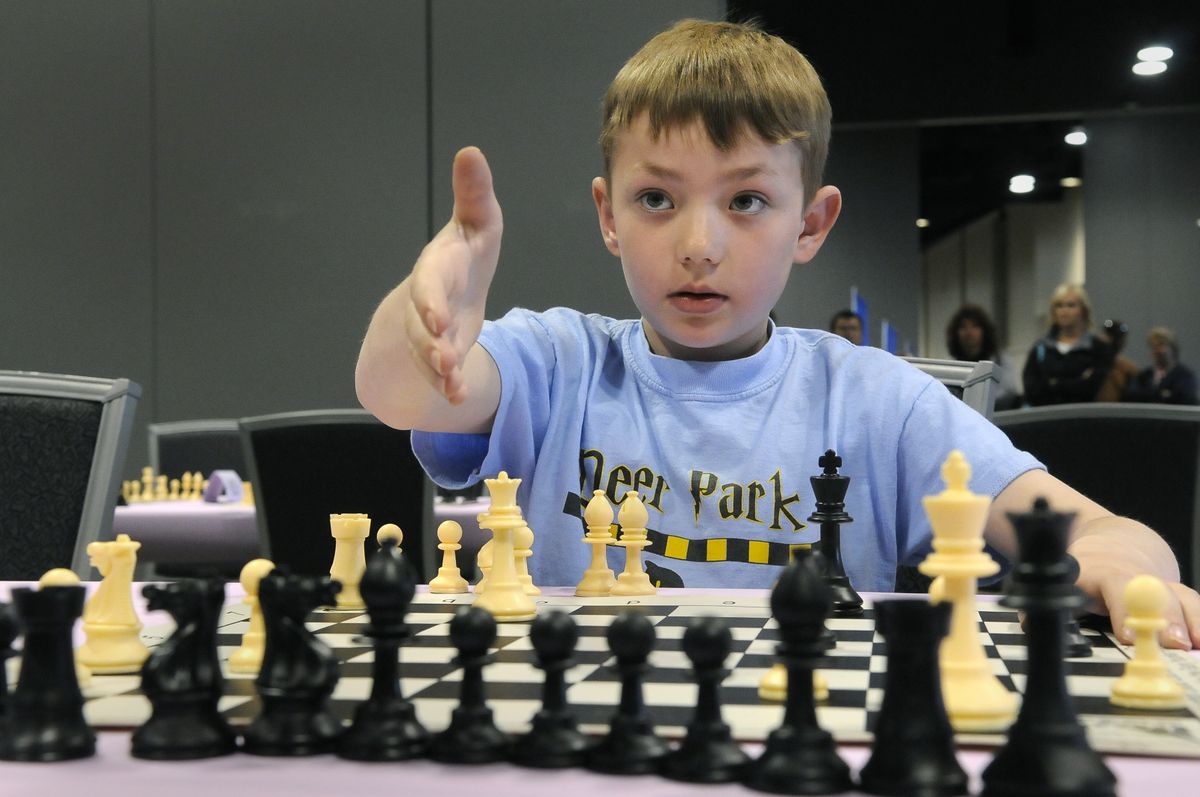Youngsters’ focus on chess belies their age
But between matches, they’re just kids

With a Kool-Aid mustache and an “I love chess” T-shirt, 5-year-old Garrett Casey propped himself on his knees in a chair to play his last round of the Washington Elementary Chess Championships.
The north Spokane boy hadn’t lost a game in four rounds Saturday. But this was his first time facing 5-year-old Naomi Bashkansky.
Garrett and Naomi were among more than 1,000 kids – kindergarten through sixth grade – who were at the Spokane Convention Center to play in the biggest chess tournament ever held in Spokane. Garrett was one of only a few preschool children who participated.
To explain why kids so young can do so well at a game many adults find challenging, Dr. Kathleen Webb said kids don’t overthink the game. Instead they rely on “spatial” reasoning and “pattern recognition,” said Webb, a pediatrician and tournament volunteer.
Whatever’s going on in their brains, they clearly love chess.
Between games, tournament participants played wall ball, screeched as they jumped in a bouncy house and chased each other around. Occasionally, a group would stop where a non-tournament game of chess was being played and offer advice, but it fell on deaf ears.
When the rounds started, the entire second floor of the Convention Center quieted to a dull murmur.
“It’s a good way to teach children focus,” Webb said.
Garrett has been playing the game since he was 4. His dad taught him, but he’d be lucky to win now. Garrett’s brother, 7-year-old Braxton, also plays.
“(Garrett) really took to it once he played,” said Laura Casey, his mom.
Garrett, who assembled jumbo Legos between chess games, would not reveal any secrets to his game – only that he practices.
When Laura Casey tells people she’s not available for activities because her sons are playing in a chess tournament, she gets some odd looks. Most kids play sports, so people are surprised.
“I wish more would play chess,” Casey said. “It’s so good for developing minds.”
Kids who play chess are better at reading and math, said event coordinator James Stripes. Chess also teaches good sportsmanship, he said.
During some pre-game chatter, Garrett’s opponent Naomi, who lives in Redmond, Wash., revealed she got good at chess when “my brother showed me a few good moves.” The 5-year-old started playing last summer, and now she can’t get enough.
Asked why she likes the game, Naomi said: “I like to win trophies and dollars.”
Garrett and Naomi shook hands, and the final game commenced. No words were exchanged. They moved the chess pieces deliberately and with ease.
And Garrett met his match. He placed fifth in his age group. Naomi took first.